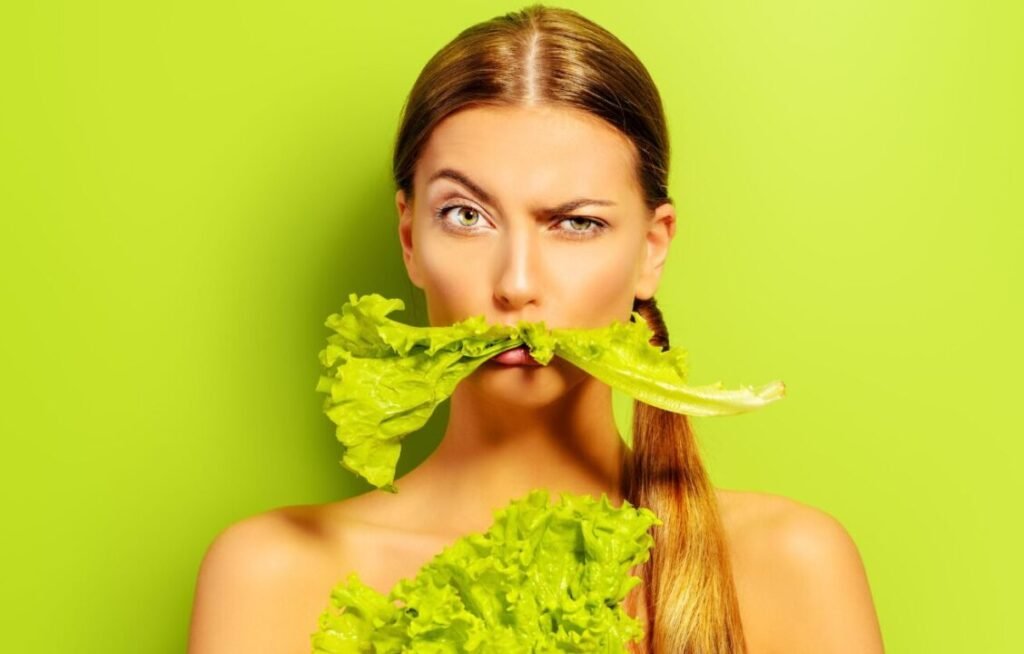You’ve likely heard the terms ‘plant-based’, ‘vegetarian’, and ‘vegan’, but do you truly understand what sets them apart?
It’s not just about what’s on your plate, but also the beliefs and values that guide these choices.
Whether it’s for health reasons, animal welfare, or environmental concerns, each diet is unique in its approach and benefits. What if you could find out more – would you be ready to explore the nuances and make an informed choice for your lifestyle?
Let’s start the journey.
Understanding Plant-Based Diets
Let’s dive right into understanding what a plant-based diet is, a nutritional approach that emphasizes the consumption of foods derived from plants, including vegetables, grains, nuts, seeds, legumes, and fruits, and typically excludes or minimizes meat.
It’s basically a plate filled with plant-derived nutrient sources, bursting with vibrant colors and packed with essential vitamins, minerals, and fiber.

Now, you’re probably wondering about the environmental benefits of a plant-based diet.
Well, by choosing to eat more plant-based foods, you’re contributing greatly to reducing greenhouse gas emissions. This is because the production of plant-based foods generally requires less energy, water and land compared to the production of meat.
So, switching to a plant-based diet isn’t just beneficial for you, it’s also a way of caring for our planet.
But let’s get back to the nutrient sources in a plant-based diet.
You might think that it’s hard to meet all your nutritional needs without meat.
However, with a little planning and knowledge, you can get all the nutrients you need from plants alone. Whole grains, for instance, are rich in carbohydrates and fiber, while nuts and seeds provide healthy fats and protein.
Legumes are another fantastic source of protein and fiber. And let’s not forget fruits and vegetables, which are packed with essential vitamins and minerals.
Exploring the Vegetarian Lifestyle
Now, as we shift from a plant-based diet, you might be curious about the vegetarian lifestyle, which takes a step further in excluding any form of meat from the diet.
Vegetarianism isn’t just about what you eat, but it’s a lifestyle choice that reflects personal values and beliefs.
Vegetarian meal planning can be a fun and rewarding process. You’ll discover a world of new flavors and foods you may not have considered before.
Think a lot of fruits, vegetables, grains, nuts, and seeds but also don’t forget the importance of protein-rich foods like legumes, tofu, and tempeh. You might think it’s restrictive, but with a little creativity, the options are endless.
But it’s not just about the food.
Ethical considerations often play a key role in the decision to adopt a vegetarian lifestyle. Many vegetarians choose this path out of concern for animal welfare, environmental sustainability, or health reasons. It’s a choice that can lead to a reduction in your carbon footprint and contribute to a more humane world.
Remember, it’s not about perfection, but about making conscious choices that align with your values. If you’re considering this lifestyle, start small. Perhaps try incorporating one vegetarian meal into your week and gradually increase from there.
The vegetarian lifestyle is a journey, and like any journey, it should be enjoyed and savored.
You’re not just changing your diet; you’re embracing a lifestyle that can benefit your health, the environment, and the welfare of animals.
The Vegan Diet: An Overview
Diving deeper into plant-based lifestyles, you’ll find the vegan diet, a strict form of vegetarianism that excludes not only meat but also all animal-derived products. This means no eggs, dairy, honey, or anything else that might involve the use of animals in its production. I
t’s a diet that’s not just about what you eat, but a lifestyle that reflects a commitment to animal rights and environmental sustainability.
Now, let’s address vegan diet misconceptions.
One common myth is that vegans can’t get enough protein. In reality, plenty of plant-based foods like quinoa, lentils, and tofu are rich in protein. Plus, a varied vegan diet can provide all the essential nutrients your body needs.
Another misconception is that veganism is inherently expensive.

While some specialty vegan products can be pricey, base ingredients like vegetables, fruits, grains, and legumes are often cheaper than meat and dairy. Learning to cook from scratch can make a vegan diet affordable for most people.
Speaking of Veganism’s environmental impact, it’s substantial.
A vegan diet requires less water and land than diets including animal products. Plus, it contributes to lower greenhouse gas emissions. By choosing veganism, you’re making a significant contribution to combating climate change.
However, it’s essential that you plan a vegan diet well to make sure you’re getting all necessary nutrients. Consult a dietitian if you’re unsure.
Remember, veganism is a lifestyle choice that goes beyond diet. It’s about making conscious choices that align with your values of animal welfare and environmental responsibility.
In the end, the most important thing is to choose a diet that’s sustainable and healthy for you.
Comparing Plant-Based, Vegetarian, and Vegan Diets
Having explored the vegan diet, you may wonder how it stacks up against other plant-based and vegetarian diets.
Let’s examine the comparative analysis of these dietary choices, keeping in mind the influences of dietary motivations and cultural factors.
Starting with the plant-based diet, it’s a broad category that generally includes any diet consisting largely of foods derived from plants, including fruits, vegetables, nuts, seeds, grains, and legumes. However, it doesn’t completely exclude animal products.
The extent to which you include them depends largely on personal preferences and dietary motivations.
On the other hand, a vegetarian diet strictly excludes all types of meat, be it poultry, red meat, fish, or seafood. However, it does allow dairy products and eggs.
There’s also a subcategory, the lacto-ovo vegetarian diet, that includes both dairy and eggs. Your dietary motivations, such as health concerns, animal welfare, or environmental sustainability, may lead you towards this choice.
Moving on to the vegan diet, it’s the strictest of the lot.
It excludes all animal-derived products, even honey, dairy, and eggs. This diet not only reflects a dietary choice but often a lifestyle commitment, influenced by ethical and environmental considerations.
Cultural influences also play a significant role in shaping these dietary choices. For instance, vegetarianism is prevalent in Indian culture due to religious beliefs, while veganism is gaining popularity in Western cultures due to growing awareness of animal rights issues.
Health Implications of Each Diet
When considering the health implications of plant-based, vegetarian, and vegan diets, it’s important to understand the nutritional benefits and potential deficiencies each one can present.
Plant-based diets are rich in fiber, vitamins, and minerals that contribute to a healthier heart and reduced risk of obesity and diabetes. However, you may need to supplement your diet with Vitamin B12, as it’s mainly found in animal products.
Vegetarian diets, while also offering similar benefits, can lead to dietary deficiencies.
The lack of meat could cause a shortage of essential nutrients like iron, zinc, and omega-3 fatty acids. Therefore, you should consider incorporating fortified foods or supplements to prevent such deficiencies.
Vegan diets, though beneficial in disease prevention due to their low fat and high fiber content, can pose a greater risk for nutrient deficiencies. Critical nutrients, like Vitamin B12, calcium, iron, and zinc, are often found in animal products.
As a vegan, you’ll need to make sure you’re getting enough of these through fortified foods or supplements.
Making the Right Dietary Choice for You
Now that you’re familiar with the health implications of plant-based, vegetarian, and vegan diets, it’s time to contemplate which one best aligns with your lifestyle, personal health goals, and nutritional needs.
Making the right dietary choice involves various factors such as your personal preferences, your body’s unique requirements, and your commitment to dietary diversity.
Your personal preferences play a significant role in determining whether a diet is sustainable for you.
If you find joy in consuming a wide range of fruits, vegetables, and grains, a plant-based diet might be a good fit. On the other hand, if you’re not ready to give up dairy products, a vegetarian diet may be more suitable.
Dietary diversity is another important factor.
A well-rounded diet can provide a broad spectrum of nutrients. For instance, a vegan diet can be high in fiber and low in saturated fats.
However, it might be more challenging to get enough protein, vitamin B12, and omega-3 fatty acids. Therefore, if you choose this diet, you might need to plan your meals carefully or consider supplementation.
Lastly, consider your health goals. If weight loss is your objective, a plant-based diet emphasizing whole, unprocessed foods can be effective. If managing a specific health condition is your priority, the dietary choice might vary.
For example, a low-fat vegan diet can help manage type 2 diabetes.

Takeaway
So, whether you’re drawn to a plant-based diet, considering vegetarianism, or thinking about going vegan, it’s all about finding what works best for you.
Each has its unique benefits and considerations, from health impacts to environmental implications.
Do your research, listen to your body, and make the choice that aligns with your values and lifestyle.
Bear in mind, there’s no one-size-fits-all diet – the best diet is the one you can stick to and enjoy.
